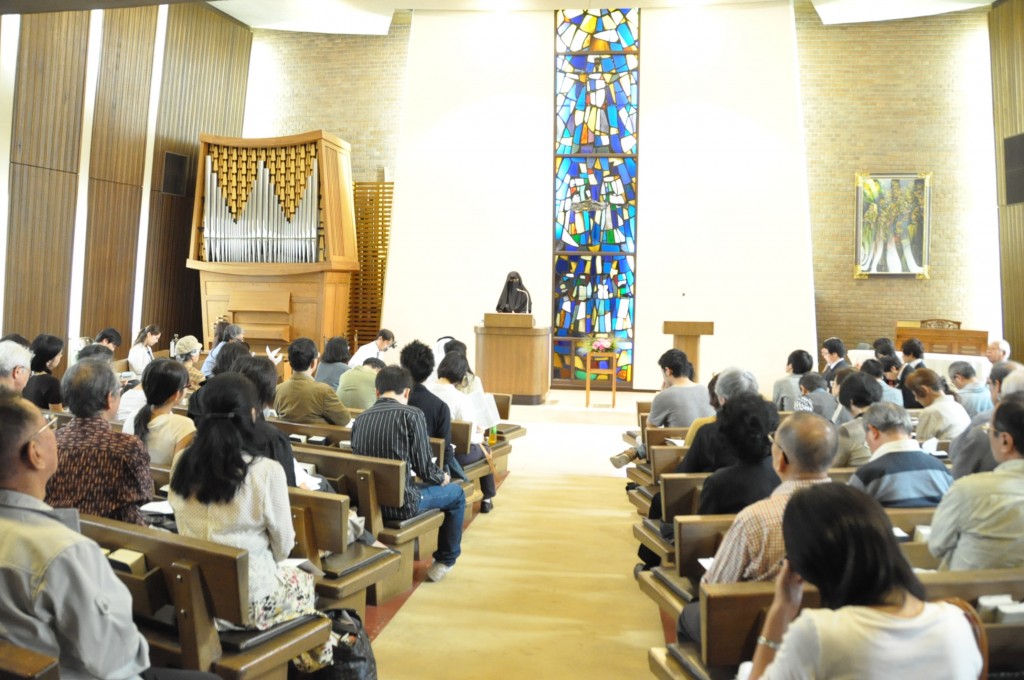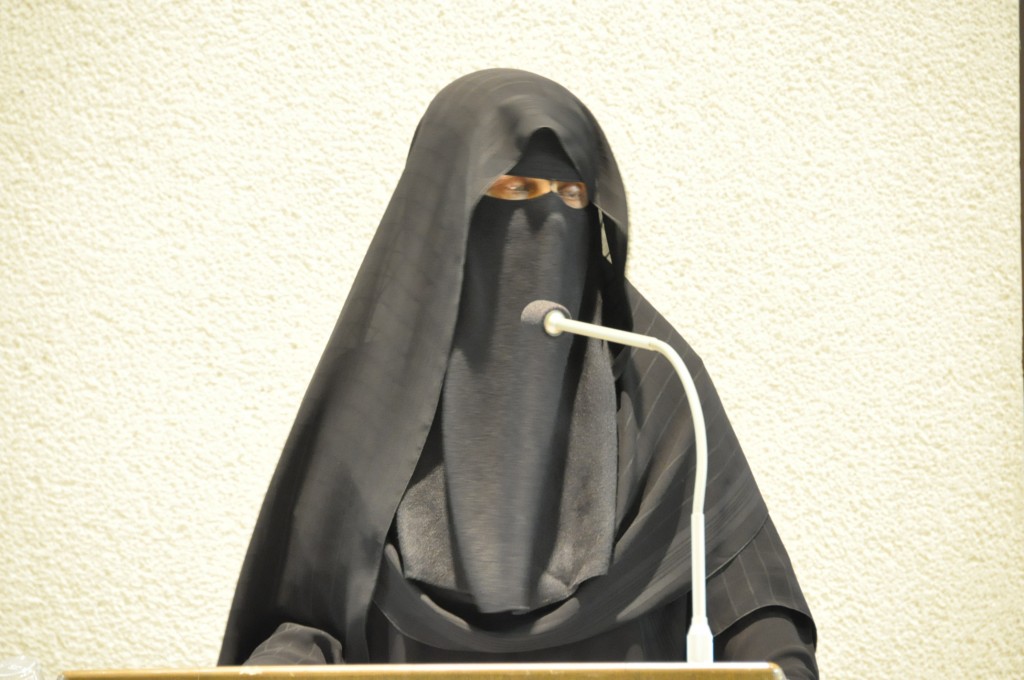Center for Interdisciplinary Study of Monotheistic Religions(CISMOR)Doshisha University
> Public Lectures > Muslim Women in the Contemporary WorldPublic Lectures
Public Lecture by Project 1
Muslim Women in the Contemporary World
| Date: |
2011/10/22 13:30− 15:30 |
|---|---|
| Place: | Divinity Hall Chapel, Imadegawa Campus, Doshisha University |
| Lecture: | H.H. Princess Prof. Dr. Sarah A. Bin Jalawi Al Saud, Chairperson of Prince Abdulmohsin Bin Jalawi Center for Research & Islamic Studies |
| Summary: | |
|
In this lecture, H.H. Princess Prof. Dr. Sarah A. Bin Jalawi Al Saud discussed the Islamic ideals of women vis-a-vis the current reality and analyzed the present situation surrounding Muslim women from the perspective of modernization. The Islamic concept of human rights is not something devised by man. Instead, it stems from Allah and is underlain by four values, namely, freedom, justice, rights of various kinds (rights of human beings), and equality. Respecting human rights is considered to constitute a part of worshipping God, thus no one is allowed to think little of human rights. Besides calling for respect for human rights, Islam even protects them under its law. In Islam, there is no distinction between men and women in terms of rights and obligations, and both men and women are considered to have been given dignity by God, equally as human beings. In this light, we should pay special attention to three links: The links between freedom and responsibility, between justice and equality, and between rights and obligations. In Islam, freedom is regarded as the most important right for man. Freedom is associated with will, and will means choice, and making a choice includes accepting the consequence of the choice and taking responsibility for it. Muslim women are supposed to have the right to choose a husband as well as both the right and obligation to receive education. The right to work is generally granted, though there are certain conditions and restrictions. In terms of economy and property rights, Muslim men and women are considered to have an equal right to dispose of and possess properties. The right to participate in public life is also granted to men and women alike, with both of them supposed to assume the same role in the process of social development. Muslims have upheld these unchanging ideals but the general notion is that today’s Muslim women are faced with not-so-comfortable situations. This is because of Muslim backwardness in thought, politics, economy, and various other aspects that was emphasized during the days of European colonization. As a result, the ideals of women held by Muslims are no longer relevant in today’s society. Now, Muslim women feel that they are unduly treated and hope to realize their full potentials by assuming a more positive role in society. It should be noted, however, that Muslim women have often been required to achieve self-actualization without due consideration given to the conventional Islamic values and ideals of women. Today, Muslim society is divided into three groups depending on their attitude toward Islamic identity. The first group sticks to the past and opposes opening themselves to new values. The second group opts to abandon certain traditional values that should not be abandoned, in order to connect with the rest of the world. The third group decides what to choose and what not to choose without following specific principles. Such inconsistency is prevalent especially among Muslim women, obviously causing them to lose their identity. In general, Islamic doctrine and civilization are at the core of the identity of Muslims. Recently, however, Muslim women, especially the younger generation, tend to disrespect such Islamic values and yearn to be clad in other cultures that are not their own. This tendency has been fueled by mass media, causing people to grow more skeptical about the values held by Muslim women. There has been some attempt in Islamic society to propagate values of other cultures to the extent that overwhelms Islamic values, and this has resulted in the spread of the practice of overly relying on others and also in the expansion of a consumption culture. Further, women are used as a means to promote a consumption culture. The situation where emphasis is placed excessively on material wealth, not spirituality, poses a highly serious problem to Muslim women today. After the lecture, a closed workshop was held where Dr. Mesfer Ali Mohammed Al-Qahtani discussed the relationship between human rights and Islamic Law. According to him, in Islam, human dignity originates from a divine source, and therefore, Islamic Law and the concept of human rights are fundamentally compatible with each other. Then followed a heated discussion among the participants, who addressed the difference between the Western and Islamic concepts of human rights and how human rights are treated in Saudi Arabia. Tomoki Asaka (Research Fellow, CISMOR, Doshisha University) |
|
|
*This lecture will be given in Arabic with Japanese consecutive interpretation. *Admission Free, No Reservation Necessary. Hosted by: CISMOR Co-hosted by: School of Theology, Doshisha University |
|
|
Program (Japanese) |
|

